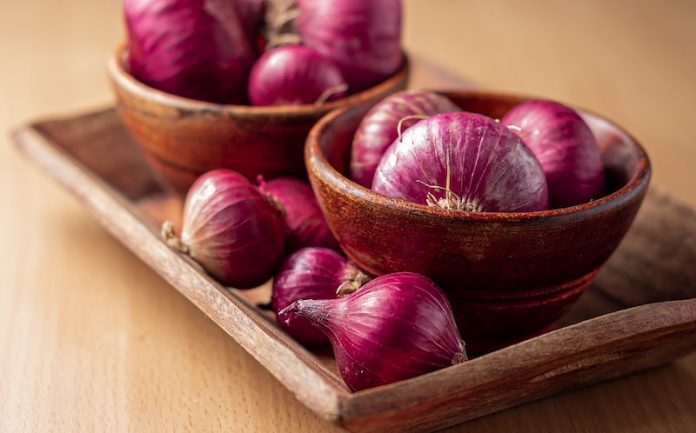
Scientists from Yonsei University in Korea found that onions may help reduce body fat and improve metabolic health in overweight people.
Onions are part of the lily (Liliaceae) family, along with garlic, shallots, and leeks. They contain potent compounds which are known to benefit health.
Onions are rich in antioxidant compounds. Previous research has shown that when eaten regularly and in sufficient quantity, these compounds may help protect against chronic diseases such as cancer and diabetes.
Onions may also support heart health by lowering blood pressure and cholesterol. They also may boost bone health, and gut health, and fight against bacteria.
There are various ways to cook onions, such as baking, steaming, and boiling.
In the study, researchers aimed to examine how taking Jeju steamed onion could influence body fat and metabolic health in overweight people.
The researchers used steamed onions to reduce spiciness and smell and dried them into onion powder.
They tested 70 people, who were divided into placebo or test groups and were instructed to take before each meal either the placebo or onion capsule for 12 weeks.
The team tested several metabolic parameters, including triglycerides (a type of fat in the blood), cholesterol, low-density lipoprotein (LDL) cholesterol (‘bad’ cholesterol), high-density lipoprotein (HDL) cholesterol (‘good’ cholesterol), and other factors before and after 12 weeks.
They also measured the body composition of each participant with an x-ray and CT.
The researchers found that compared to the control group, onion supplementation strongly reduced the percentage of body fat and fat mass without changing lean body mass.
The body fat mass is the weight of fat in your body. The body fat percentage is the weight of the body fat mass in relation to the total body weight.
Lean body mass is a part of body composition that is defined as the difference between total body weight and body fat weight.
This means that it counts the mass of all organs except body fat, including bones, muscles, blood, skin, and everything else.
The team also found the CT analysis showed a big decrease in the areas of whole fat, visceral fat, and subcutaneous fat.
Visceral fat is fat that wraps around your abdominal organs deep inside your body. Subcutaneous fat is the jiggly fat visible just under the skin.
In addition, the team found that the levels of triglycerides and C-peptide were much lower after 12 weeks of onion supplementation.
C-peptide is a substance made in the pancreas, along with insulin. It is measured to tell the difference between insulin the body produces and insulin that is injected into the body.
People with type 2 diabetes, obesity, or insulin resistance may have a high C-peptide level. This means their body is producing a lot of insulin to keep their blood sugar normal.
These findings suggest that onion supplementation could help reduce total body fat, and abdominal visceral fat, and improve metabolic health.
One limitation of the study is that the body fat and metabolic changes were found between the beginning and the end of the study (12 weeks interval), not between the onion group and the control group.
This may suggest that the effects of onion supplementation were strong enough.
Another limitation is that the participants in the study took onion powder supplements instead of eating real onions, and they only took an eighth of a teaspoon a day. This limited amount of onion may weaken the effects.
The research is published in the Journal of the American Nutrition Association and was conducted by Sarang Jeong et al.
Copyright © 2022 Scientific Diet. All rights reserved.








